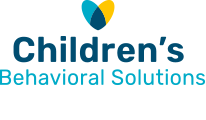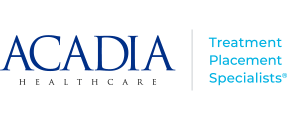Posttraumatic stress disorder (PTSD) can have a long-lasting and serious impact on the lives of children, adolescents, adults, and seniors. Acadia Healthcare’s network of treatment facilities offers inpatient, residential, and outpatient care for individuals of all ages. Your path to recovery from PTSD can begin at an Acadia facility.
Understanding PTSD
Experiencing a traumatic event can irrevocably change a person’s life. If a person has experienced, witnessed, or even learned that someone really close to them has experienced a trauma, it can have countless harmful effects on them that can impact their life in so many different ways. Whether it’s a natural disaster, a severe car accident, a plane crash, a terrorist attack, military deployment, physical or sexual assault, or child abuse, a traumatic event can lead to major disturbances in an individual’s overall well-being.
No one experiences PTSD the same way. PTSD can be associated with a whole range of emotional states depending on how it affects a person, including fear, anxiety, anger, aggression, and even the numbness of disassociation in which a person feels like their mind has separated from their body. Some people living with PTSD have frequent nightmares about the traumatic event they experienced or have physical or emotional reactions to things, people, or events that remind them of the trauma. Others who live with PTSD might do whatever they can to avoid anything that reminds them of the traumatic event to avoid experiencing distressing feelings. All of these experiences can be really overwhelming, and people who live with PTSD or any other trauma-related disorder might feel at a loss for what they can do to find relief from their symptoms.
Acadia Healthcare is proud to offer a number of treatment options within our vast network of treatment facilities that are designed to help those who are struggling with PTSD and other trauma-related concerns. When an individual chooses to heal at an Acadia treatment facility, they work with professionals who use evidence-based tools to help them learn to manage their symptoms and alleviate their day-to-day distress.
Why Consider Treatment for PTSD and Trauma-Related Disorders
PTSD and other trauma-related disorders, such as acute stress disorder, adjustment disorder, or reactive attachment disorder, only worsen over time if left untreated. Younger children who do not receive timely treatment for the effects of trauma can be at a higher risk of experiencing delays in brain development and speech and language development. Children and adolescents who don’t receive treatment for PTSD or a trauma-related concern can be at a higher risk of struggling in school, having trouble maintaining friendships, not being able to keep a steady job, and experimenting with drugs and alcohol. Adults who are suffering from PTSD might share these same challenges, and have the potential to lead to divorce, bankruptcy, addiction, and prison.
While the effects of PTSD and other trauma-related concerns might sound overwhelming, getting professional treatment can make an individual’s symptoms manageable. Life after experiencing a trauma is possible, and Acadia Healthcare’s wide network of top-notch treatment facilities has a number of programs available that can be customized to meet the individualized needs of each person seeking care. By receiving professional treatment, the long-lasting effects of trauma can be lessened or prevented altogether.
Levels of Care Offered Through Acadia Healthcare
Depending on the severity of an individual’s symptoms, most of Acadia Healthcare’s treatment facilities offer various treatment options and multiple levels of care. Whether an individual needs the intensive level of care provided through inpatient treatment or simply the structured support of traditional outpatient services, the Acadia Healthcare network provides the treatment options necessary to meet each individual’s needs.
Detoxification services: Detoxification services safely remove any substances from the individual’s system under the constant care of medical professionals and/or addiction treatment experts.
Inpatient treatment: This short-term treatment intervention is the most intensive and typically includes round-the-clock medical and psychiatric supervision.
Residential treatment: People who heal in a residential care program will typically have the opportunity to participate in multiple therapeutic activities, which might include individual, group, family, and experiential therapies.
Partial hospitalization program (PHP): Partial hospitalization programs are great options for people who do not require residential or inpatient services, but who can benefit from a structured treatment setting.
Intensive outpatient program (IOP): IOPs typically consist of two to three hours of treatment services, two to three days a week.
Traditional outpatient services: Traditional outpatient services can range anywhere from weekly or biweekly therapy sessions to monthly appointments with a psychiatrist for medication management.
Learn More
To learn more about any of the exemplary programs that Acadia Healthcare offers for the treatment of posttraumatic stress disorder and other trauma-related concerns, please do not hesitate to contact a treatment facility near you. Our knowledgeable, compassionate, and helpful staff are on hand to answer any questions you may have and to help guide you as you begin your recovery journey.






